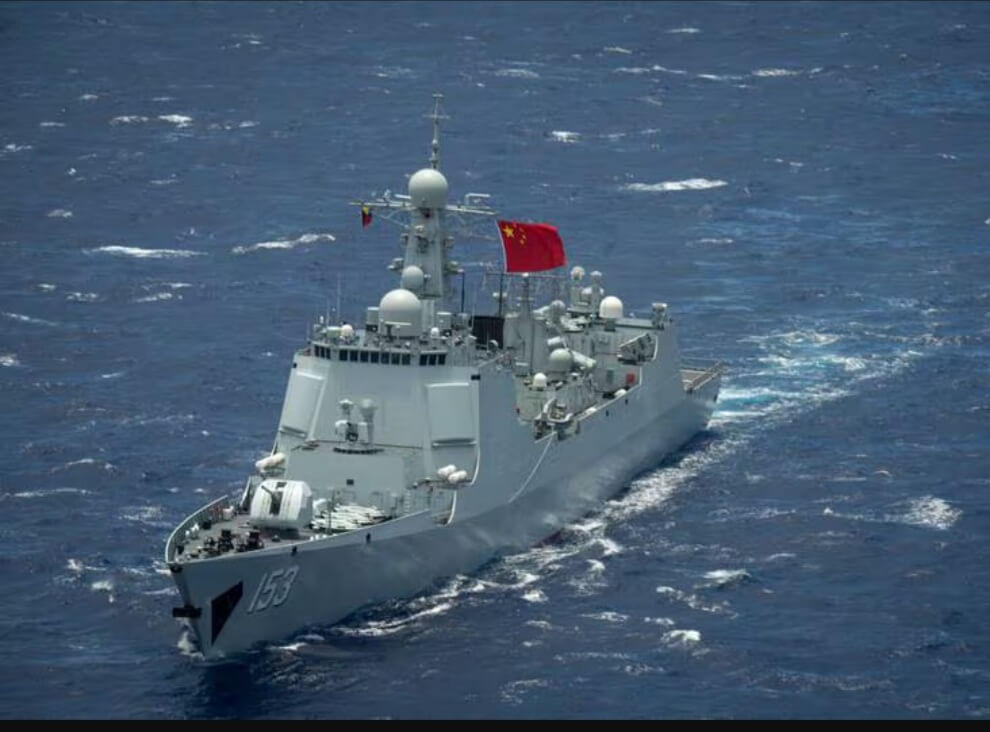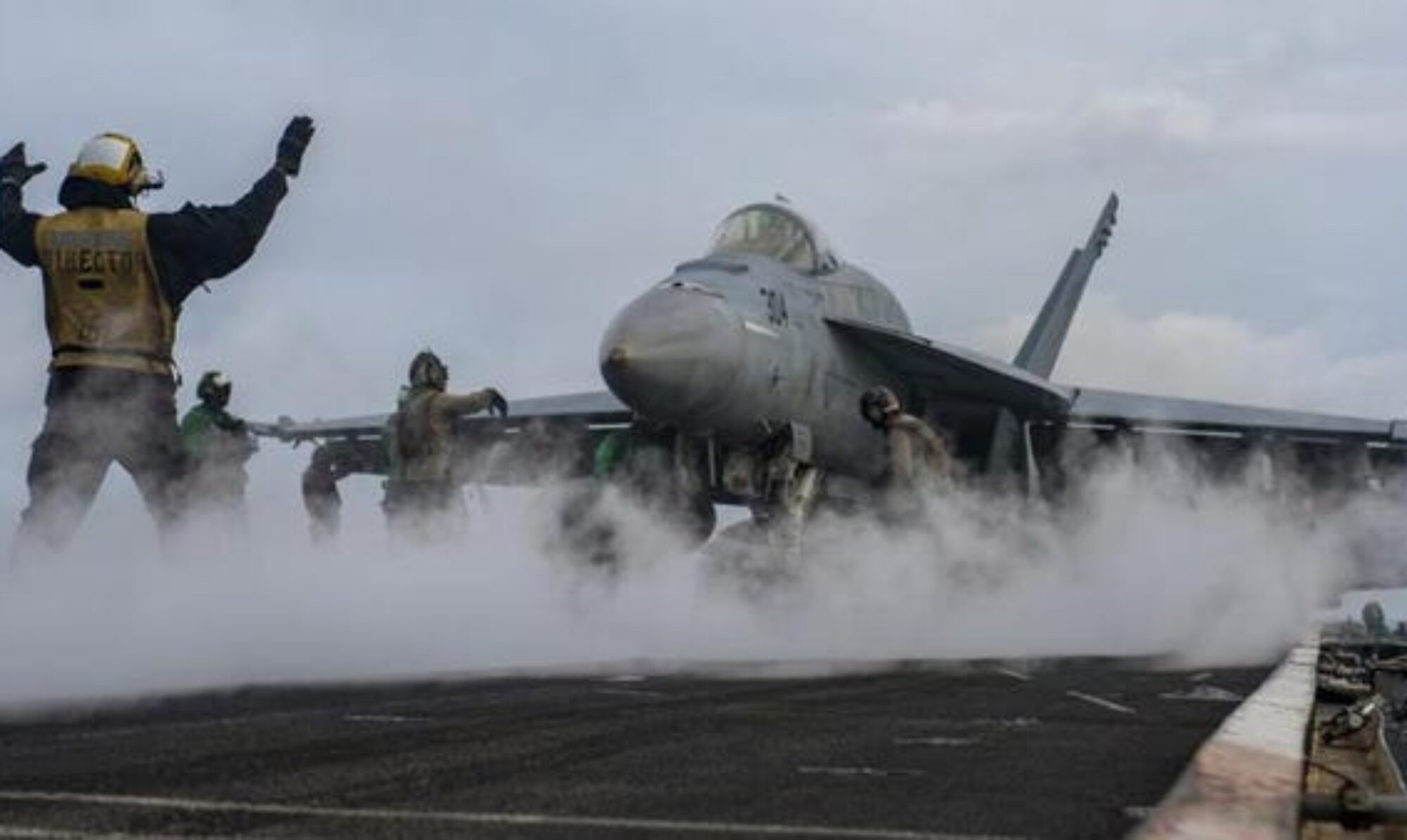
lntroduction
In the “Charting the Course – Navigating the Future of Naval Power” series, we turn our attention to a pressing concern that has significant implications for global security and naval strategy: the potential risks posed by China’s growing assertiveness. Today, we delve into insights from leading experts and military officials who shed light on China’s strategic maneuvers and their impact on the future of naval power.
Why This Matters
The evolving dynamics of global power, particularly China’s ambitious geopolitical agenda, present complex challenges that demand careful consideration and strategic foresight. Understanding these challenges is crucial for formulating robust defense strategies that ensure peace, promote diplomacy, and maintain the freedom of the seas.
Implications for the Navy
The potential for conflict with China, particularly concerning Taiwan and the South China Sea, underscores the need for a well-prepared and resilient naval force. The insights from military leaders, such as Gen. Mike Minihan’s stark prediction of a possible war with China in 2025, highlight the urgency of readiness and the importance of strategic clarity in the face of emerging threats.
Escalating Tensions and Provocative Rhetoric: A Case in Point
As we navigate the intricate challenges posed by China’s strategic ambitions, specific instances underscore the need for vigilance and strategic prudence. A recent example is the provocative suggestion by Col. Dai Xu, a senior Chinese Air Force official, advocating for aggressive tactics against U.S. warships operating in the South China Sea, a region where Beijing asserts expansive territorial claims. During a panel discussion, Col. Dai proposed that in response to U.S. freedom of navigation operations, which challenge China’s claims, Chinese warships should not only intercept but also consider ramming U.S. vessels to deter their presence in these contested waters.
This rhetoric, though reflective of nationalist sentiments, is significant given Col. Dai’s position within the Chinese military and the publication of his remarks by state-controlled media, suggesting a level of endorsement or at least, tolerance by the Chinese government. Such statements, coupled with the ongoing militarization of the South China Sea by China, exemplify the type of confrontational posture that complicates diplomatic efforts and emphasizes the importance of a well-prepared naval force capable of ensuring peace and stability in international waters.
Moreover, Col. Dai’s hawkish stance extends to Taiwan, highlighting the potential for escalated tensions that could have broader implications for regional and even global security. The suggestion of forced reunification with Taiwan, regardless of economic consequences, adds another layer of complexity to the strategic landscape the U.S. Navy and its allies must navigate.
Advocating for Peace, Diplomacy, and Preparedness
In light of such developments, “Americans for a Stronger Navy” reiterates its commitment to advocating for peace and diplomacy as the cornerstone of international relations. We recognize that while diplomatic efforts are paramount, the realities on the ground — exemplified by the rhetoric and actions of figures like Col. Dai Xu — necessitate a posture of readiness and strategic foresight.
Expert Perspectives
- In “Are China and the Philippines on a Collision Course?” from the United States Institute of Peace, authors Dean Cheng, Carla Freeman, Ph.D., Brian Harding, and Andrew Scobell, Ph.D., explore the escalating tensions in the South China Sea. They emphasize the need for a strong naval presence to deter aggression and maintain regional stability.
- “How Primed for War Is China?” by Michael Beckley and Hal Brands in Foreign Policy examines the likelihood of China initiating conflict, particularly over Taiwan. They argue that risk indicators for such a conflict are alarmingly evident, necessitating a vigilant and prepared naval response.
- Kyle Bass, in his CNBC piece “China hawk says Beijing could attack Taiwan by 2024, bringing ‘war to the West’,” discusses the potential for China to assert control over Taiwan by force. Bass’s insights underscore the strategic importance of naval power in deterring aggression and protecting democratic values.
- The insights from Col Grant Newsham (Retd.) in “Friends of China have huge influence on Capitol Hill: Grant Newsham” published in The Sunday Guardian, delve into the multifaceted nature of China’s strategy, including political warfare and economic leverage. Newsham’s analysis reveals the depth of China’s influence and the critical need for a unified and strategic response to safeguard national and global interests.
Advocating for Peace, Diplomacy, and Preparedness
While we steadfastly support the principles of peace and diplomacy, the realities of the current geopolitical landscape necessitate a posture of preparedness. We advocate for increased investment in the Navy, not as a means to provoke conflict but as a vital component of a comprehensive strategy to deter aggression, support diplomatic efforts, and uphold international law. This balanced approach ensures that our naval forces remain capable guardians of peace and stability in an increasingly uncertain world.
Conclusion
As we navigate the challenges posed by China’s strategic ambitions, the insights from esteemed experts and military officials provide valuable guidance. Through informed dialogue and strategic investment in our naval capabilities, we can chart a course toward a future where peace, freedom, and security prevail. Engaging with these complex issues is not only a matter of national security but a commitment to the principles that define us as a nation and a global community.

